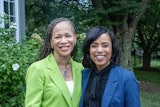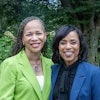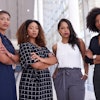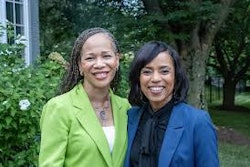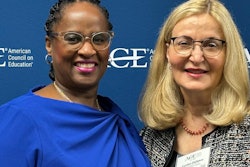In higher education, we talk a lot about diversity, but all too often students, faculty and staff can find themselves at a loss, and ill-equipped to talk openly, constructively and authentically about issues of culture, privilege, power, gender and race.
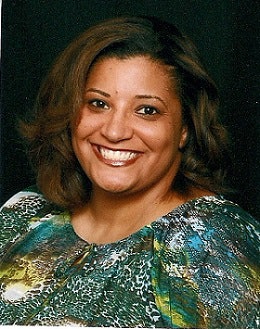 Dr. Lynn Hampton
Dr. Lynn HamptonHigher ed’s discomfort mirrors the nation’s inability to talk honestly and seriously about race, class and other social issues. But done right, higher education can be a model on how to create more inclusive and optimal learning environments for students from all sociocultural backgrounds.
All college campuses wrestle with these issues and instead of being ideological echo chambers, or muting dissent, colleges must encourage difficult conversations and coach students on how to hold civil discourse. How can we do it? Beyoncé.
In the 2018-19 academic year, I introduced a course titled “Beyoncé and Intersectionality.” The goal of the course was to enrich the cultural competencies of the overwhelmingly White and heteronormative student population. The celebrity of Beyoncé serves as an important feminist cultural icon to engage students in a thoughtful and authentic conversation about these challenging topics. The artistry, musicianship and feminism of Beyoncé was used as a catalyst to help students explore deeper issues of patriarchy, racism, classism and sexism.
In order for this to be effective, we created a “brave space” classroom where students could engage in “difficult” classroom conversations around issues of race, identity, social justice, equity and diversity.
The concept of a brave space is predicated on the notion that real learning requires some risk and discomfort. Brave spaces are fundamentally distinct from “safe spaces” where the goal of the teacher is typically to rule out conflict, and invoke practices, norms and language. This approach can interfere with quality discussions around difficult topics such as justice, equity, discrimination and oppression, according to a 2015 paper on brave spaces by Sarah Stanlick from Lehigh University.
In contrast, brave spaces encourage students “to experience disorientation as they wrestle with tensions related to agency, social responsibility and worldview,” said Stanlick.
The primary learning objective of the course was to help students understand how gender intersects with other axes of inequality, such as race, class, disability status, sexuality, nationality and geography. To achieve this objective, the course emphasized a classroom approach that encouraged critical reflection, inquiry, exploration and authentic dialogue.
In the Beyoncé course, students are required to engage in weekly writing prompts that encourage them to apply critical thinking and analysis of course readings examining black feminist writers such as Brittney Cooper, Kimberle’ Crenshaw, Audre Lorde, bell hooks and Patricia Hill Collins. These weekly writing prompts are used as vehicles to help facilitate more authentic and engaging dialogue to challenge students to view intersectionality as a critical framework for understanding the interactive dynamics of race, class, gender and other categories of identity. This fosters a better understanding of the ways that power and inequality function in our society for marginalized and oppressed groups.
 Beyoncé
BeyoncéIn order to foster more authentic dialogue and encourage true risk-taking and vulnerability, students were coached into taking on a facilitator role that allowed them to tackle new identities and deepen their understanding of how intersecting identities of race, class and gender create powerful legacies of oppression and resistance for women of color in our society. In small discussion groups, students were assigned as co-facilitators to allow for deeper reflection, analysis and engagement with the course material. As facilitators, students were required to engage their peers in a critical analysis of the artistic engagement, feminism, lyrics, music videos and the performance from an assigned Beyoncé track.
Students were evaluated based on their ability to facilitate discussion in a highly engaged manner, communicate their ideas with depth and complexity of thought as well as the degree to which they encouraged their peers to think more critically and analytically, not only in regards to the assigned readings, but also the connection to core ideas/themes of Beyoncé’s track as it relates to a deeper examination of systems of inequality and the interconnection among patterns of discrimination based on race, gender and other social identities.
At the completion of the course, students reported the lessons in the classroom had a “profound impact” on their academic journey and made them “better prepared to become ethical leaders and responsible citizens in the global community by gaining empathy for others and a better understanding of our world.” Moreover, the engagement within the classroom was instrumental in not only developing the cultural humility of these students but also taught them about implicit bias and micro-aggressions.
The Beyoncé and Intersectionality course can serve as a model for how to combat systematic oppression on college campuses as well as within our larger society. This brave space classroom helped foster the broadening of cultural awareness, enhanced intercultural communication and better engagement with diverse peers for a broad range of students within the college community.
This should signal a sign of hope for higher education professionals. By focusing on inclusive teaching practices that facilitate a brave space classroom, we have the potential to create transformational change that will promote a “healthier” campus climate and a more culturally engaging campus community.
Dr. Lynn Hampton is a sociologist in the John V. Roach Honors College at Texas Christian University. She teaches Beyoncé and Intersectionality, Engaging Difference and Diversity, and U.S. Schooling and American Society.
